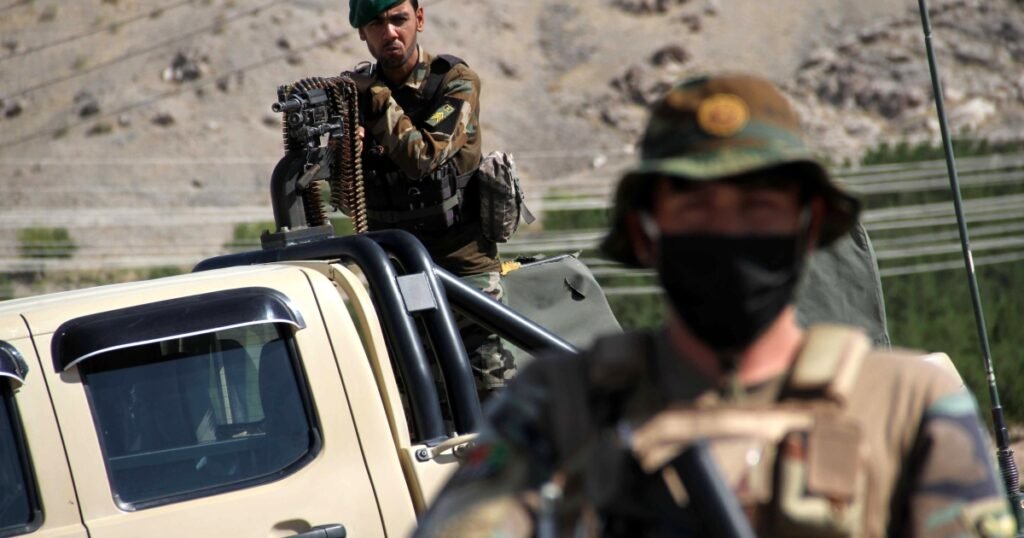Hassan Kazemi-Qomi, Iran’s special envoy to Afghanistan, claims that the US has not yet left Afghanistan and its people after its hasty military withdrawal in mid-August, and that it is fomenting instability and insecurity in the war-torn country through proxies and Takfiri terrorist groups like Daesh.
“The Americans have not left Afghanistan and its people alone so far and we are witnessing instability and insecurity in this country through [US] proxy war tools and Takfiri [terrorist] groups such as Daesh,” Kazemi-Qomi told reporters in Islamabad.
He stated that the situation in Afghanistan has an impact on regional security and stability.
Kazemi-Qomi was in Pakistan for the 17th emergency session of the Council of Foreign Ministers of the Organization of Islamic Cooperation (OIC) on the situation in Afghanistan.
He praised the meeting as “an important step” toward resolving Afghanistan’s crisis.
He expressed Tehran’s viewpoint at the gathering, stating that the Islamic Republic highlighted the significance of forming a national and inclusive administration in Afghanistan.
He went on to say that such a government would eventually solve the country’s economic and security challenges, which are the result of at least 20 years of American occupation.
Iranian Foreign Minister Hossein Amir-statements Abdollahian’s at the meeting, according to Kazemi-Qomi, were well received.
The special session of the OIC was held with the goal of resolving the humanitarian issue in Afghanistan.
The US and its European allies have frozen assets and humanitarian help worth billions of dollars, plunging Afghanistan into an unthinkable crisis, with millions of people on the verge of hunger.
Amir-Abdollahian spoke with Afghanistan’s acting Foreign Minister Amir Khan Muttaqi on the sidelines of the OIC’s extraordinary conference, according to Taliban spokesman Zabihullah Mujahid.
“Trade, economic and political relations were also discussed,” he added.
The two sides reviewed the present security and humanitarian situation in Afghanistan, as well as bilateral ties, according to the spokesman.
‘The Taliban will never allow the United States to be militarily activated.’
Seyyed Hassan Mortazavi, Iran’s deputy ambassador to Afghanistan, met with Abdul Salam Hanafi, Afghanistan’s acting second deputy prime minister, on Sunday.
The Taliban “would never allow the United States to cooperate [with Afghanistan] in the military field,” the top Afghan official declared at the conference.
Abdul Salam Hanafi also mentioned that despite Afghanistan’s economic challenges, Washington continues to impose pressure on the country.
Mortazavi, for one, indicated that Iran will continue to assist the Afghan people.
In mid-August, the Taliban insurgent group seized power in Afghanistan, just as the United States was embarking on a chaotic troop retreat.
On September 7, the group proclaimed the formation of a caretaker government, but international sanctions have so far hampered their efforts to stabilise the situation, with banks running out of cash and state personnel being unpaid.
The new rulers have cautioned Western diplomats that imposing sanctions as a means of putting pressure on their government may jeopardise security and result in a flood of economic migrants.
Meanwhile, Afghanistan’s neighbouring countries have moved up to provide assistance to the country in trouble.
Iran has welcomed Afghan refugees and dispatched food trucks to the country, which shares a 900-kilometer border with Afghanistan.
For the past four decades, Iran has hosted millions of Afghans, both documented and undocumented. It currently has one of the world’s greatest refugee populations.
In 2020, Iran harboured more than three million Afghans, including about two million unregistered migrants and 800,000 refugees, according to the United Nations High Commissioner for Refugees (UNHCR).
The Taliban ruled Afghanistan from 1996 to 2001, when the US and its allies invaded the nation and deposed the Taliban-led government under the guise of combatting terrorism in the aftermath of the September 11 attacks in the United States.
